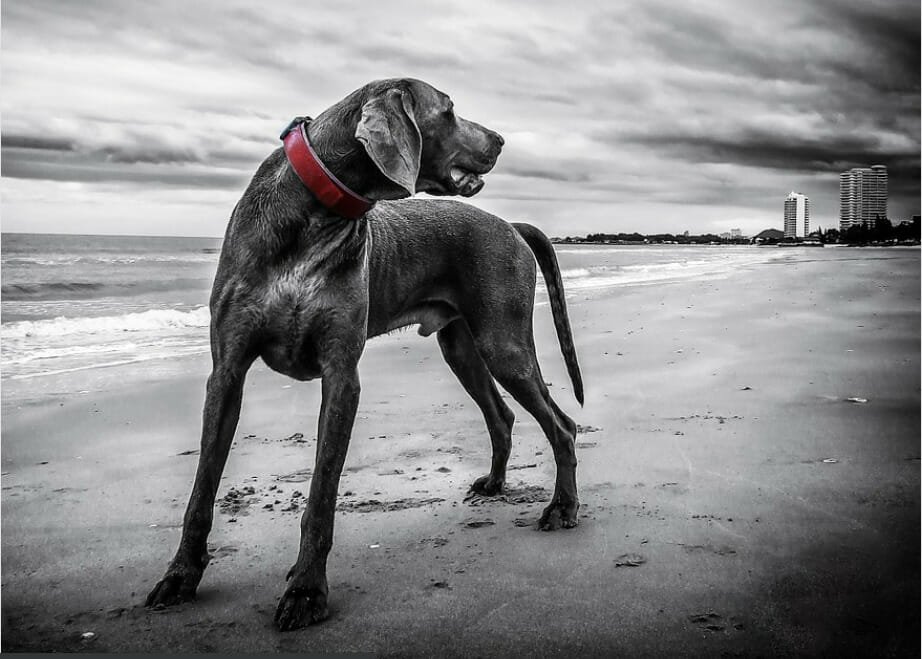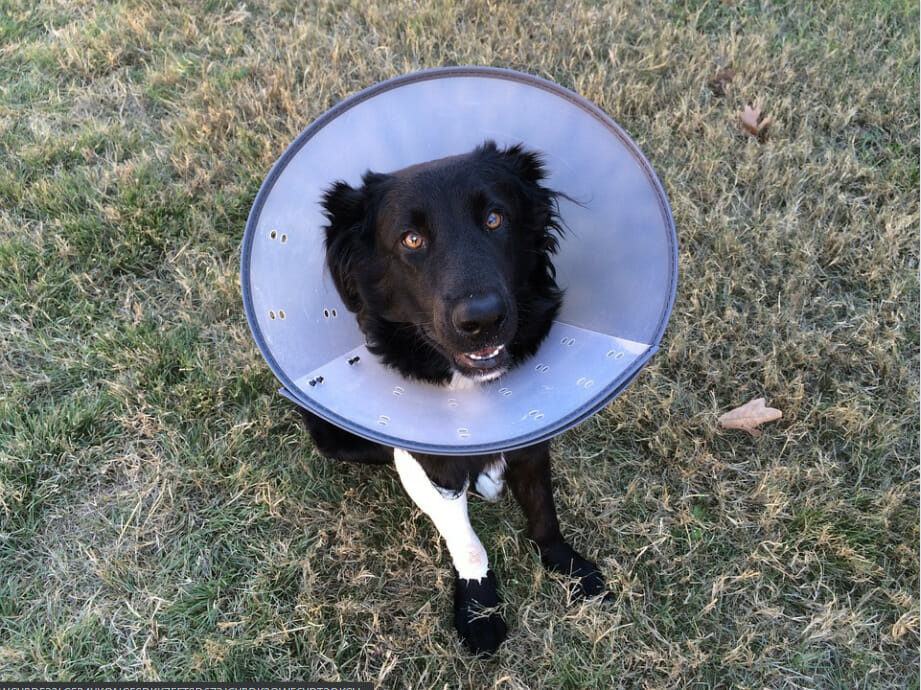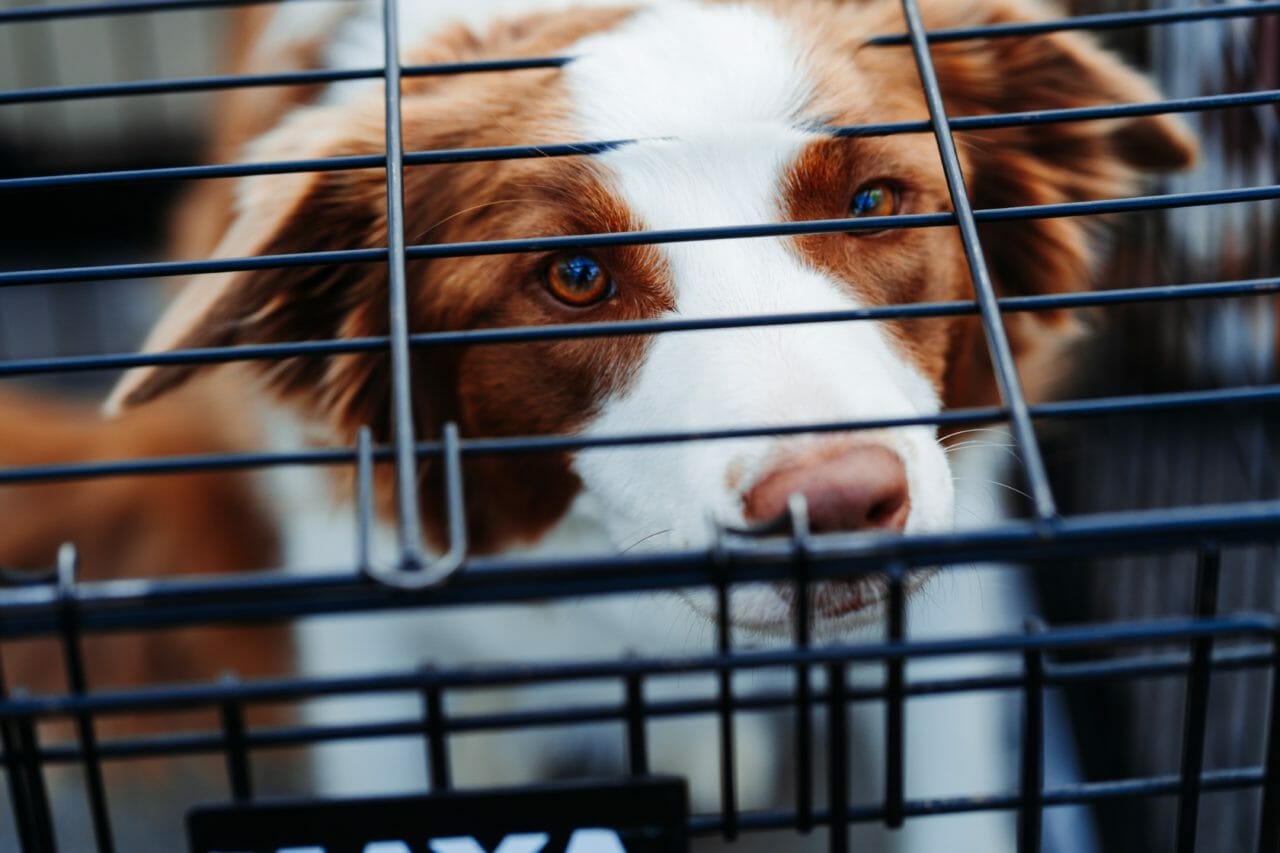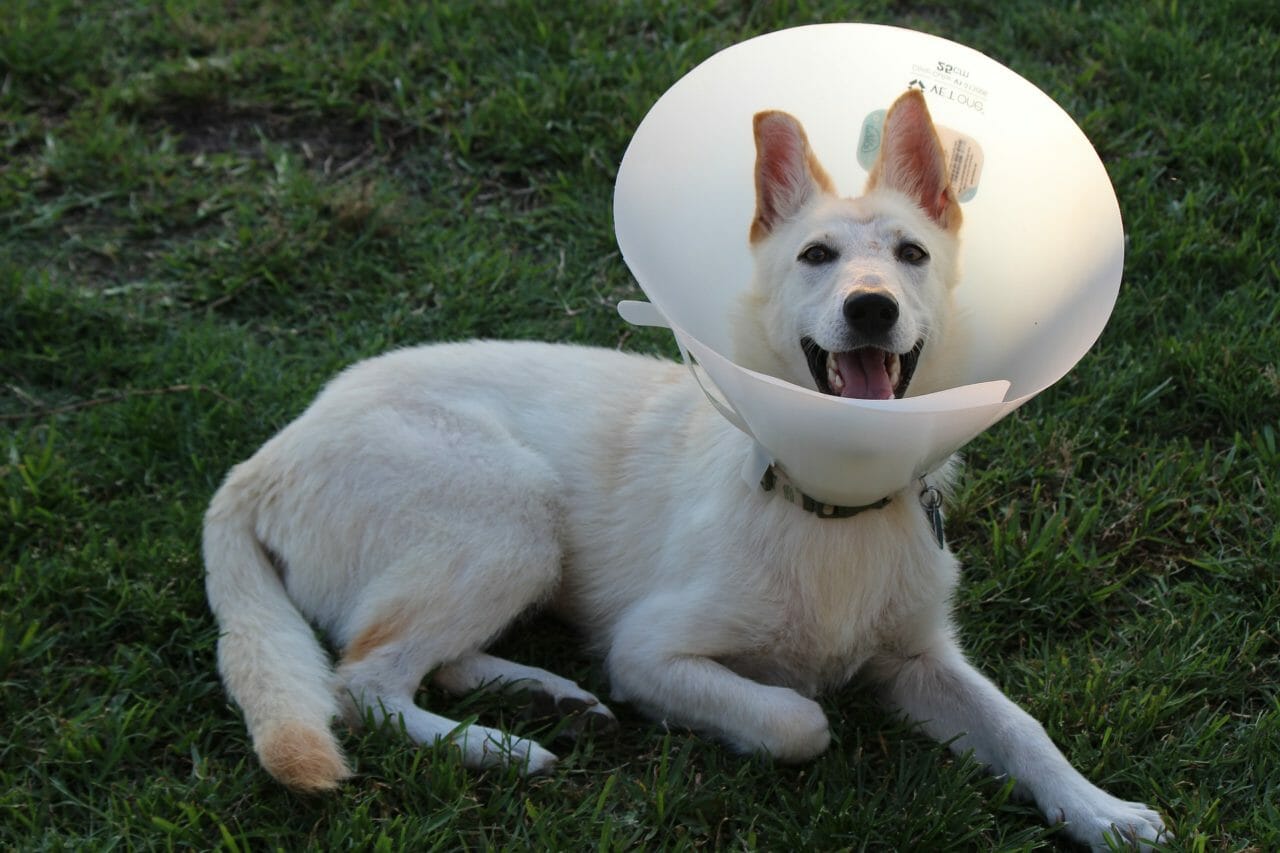The shoulder is one of the most heavily used parts of a dog’s body, and shoulder injuries are common.
Just like humans, dogs are susceptible to shoulder injuries for a variety of reasons. From slips and falls while playing to more serious physical trauma, dogs can injure their shoulders in many ways.
In this blog post, RehabPet.com will discuss the different types of shoulder injuries dogs can suffer from, the best way to treat them and how you can prevent your dog from injuring their shoulders in the first place.
How Is a Dog Shoulder Different From a Human Shoulder?
A dog’s shoulder joint sits right against the front of their body, which doesn’t allow for a wide range of motion that a human shoulder gets.
This anatomy makes dog shoulders much less flexible than people and it can be more difficult to discover the underlying problem because it can be harder to feel since the front of a dog’s chest can be thick, either from muscle or fur.
What Are the Most Common Shoulder Injuries for Dogs?
Dogs, just like humans, put their shoulders through a lot in day-to-day life. From playing fetch to going on long walks, their shoulders are constantly in use.
This wear and tear can, unfortunately, lead to a number of different shoulder injuries, including:
Dislocated Shoulder
This can happen suddenly, usually from a fall or other type of trauma. Dislocated shoulders are very painful for dogs and if not treated immediately, can cause long-term damage.
Sprains and Strains
Soft tissue injuries are usually the result of overuse or repetitive motion and are common in dogs who are very active. These are more common but usually much less problematic long term.
Torn Ligaments
Torn ligaments are similar to sprains and strains in that they are soft tissue injuries, but they take a much longer healing process. These usually happen as the result of a traumatic event, like a fall or being hit by a car.
Arthritis
Arthritis is a degenerative joint disease that usually comes with age. It occurs when the cartilage around the joints breaks down, causing pain and inflammation.
Osteochondritis Dissecans (OCD)
This is a condition that mostly affects younger dogs in larger breeds and is the result of a problem with the cartilage growth in their shoulder joints. The joint becomes inflamed when the cartilage separates from the underlying bone

Causes of a Dog Shoulder Injury
There are many different things that can cause a shoulder injury in dogs. Here are some of the most common:
- Slipping and falling
- Trauma, such as being hit by a car or running into a hard object
- Repetitive motion, such as jumping or running at full speed too often without rest
- Age
- Obesity
As previously mentioned, many of these injuries will be seen in more active dogs, but dogs that lead sedentary lifestyles are also at risk for shoulder injuries. When dogs are less active, their shoulder muscles are not used to the high levels of exertion and stress, so less active dogs are more likely to get hurt.
Signs That Your Dog May Have a Shoulder Injury
A dog shoulder injury can cause a variety of problems, some of which are immediately noticeable while others may not develop until weeks or even months after the initial injury.
Here are five potential signs that your pup has suffered a shoulder injury:
Limping
When your dog doesn’t want to put any weight on their leg, it’s a pretty good indication that something is wrong.
Whimpering or Crying
If your dog is making sounds after walking or even laying down on their shoulder, it’s a sign that their shoulder may be causing them pain.
Difficulty Moving
If your dog is having trouble getting up from a lying down position or is having trouble turning their head, it may be due to shoulder pain. This can also lead to your dog holding their head and neck at an odd angle to avoid putting any pressure on their shoulder.
Swelling
If you notice that your dog’s shoulder is swollen or larger than normal, it could be a sign of inflammation or even a dislocated shoulder. This can be hard to tell on dogs with thicker coats of fur.
Little to no appetite
A dog in pain is often unwilling to eat and may even lose weight. This is usually accompanied by a general lethargy and unwillingness to be active.
Treatments for Dog Shoulder Injuries
If you have noticed any of the above signs in your dog, it’s important to take them to see a vet as soon as possible. The vet will be able to give you a proper diagnosis and help you create a treatment plan.
Treatment for shoulder injuries in dogs will vary depending on the severity of the injury but may include:
Rest
If your dog has a minor shoulder injury, the vet may recommend a period of rest to allow the injury to heal. This means no running, jumping or playing for a few weeks.
Pain Medication
For dogs that are in pain, the vet may prescribe pain medication to help them cope with the discomfort. Pain meds are usually only for short-term use as long-term use of pain medication can be harmful to dogs.
Anti-inflammatory Medication
If the shoulder injury is causing inflammation, the vet may prescribe anti-inflammatory medication. This can help to reduce the swelling and pain associated with the injury.
Surgery
In some cases, surgery may be necessary to repair the damage caused by the shoulder injury. Surgery is usually only recommended for more serious injuries that haven’t healed with other treatments.
Rehabilitation
Once the shoulder injury has healed, the vet may recommend rehabilitation exercises to help your dog regain full range of motion in their shoulder. These exercises will be slowly increased in intensity as your dog heals to avoid re-injuring the shoulder.
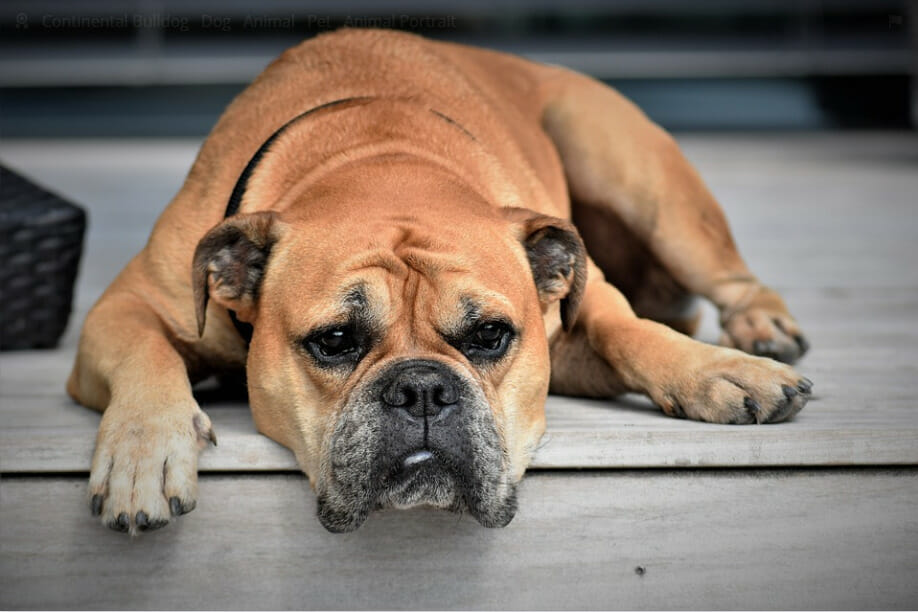
How To Prevent a Shoulder Injury in Your Dog
There are a few things you can do to help prevent shoulder injuries in your dog:
Build Their Strength
You can help build your dog’s shoulder strength by slowly increasing the intensity of their exercise routine. This will help to avoid injury when they are participating in more strenuous activities.
Give Them Rest Days
It’s important to give your dog rest days between exercise sessions to allow their muscles to recover. This is especially important if you notice they are starting to limp or seem in pain after exercise.
A Healthy Diet
A healthy diet is important for all dogs but can be especially helpful for those that are prone to shoulder injuries. A diet rich in vitamins and minerals will help to keep their muscles strong and healthy.
Regular Vet Check-Ups
Regular vet check-ups can increase the chances of identifying potential health problems that could lead to a shoulder injury. This is especially important for older dogs that may be more susceptible to injuries.
Closing Thoughts
Shoulder injuries in dogs are relatively common and can be caused by a variety of things. It’s important to be aware of the signs and symptoms of a shoulder injury so you can get your dog treatment as soon as possible.
With proper treatment, most shoulder injuries will heal without any long-term effects and your dog will be able to run, jump and play again.
